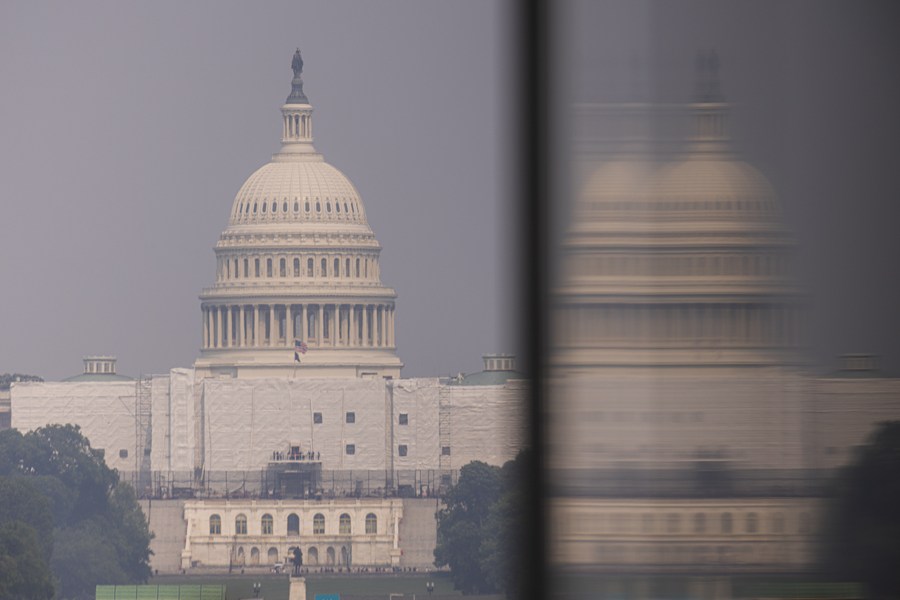
The US Capitol building is shrouded in haze in Washington, DC, the United States, on June 7, 2023. [Photo/Xinhua]
June 7, 2024 -- There should be no doubt that the Report on Human Rights Violations in the United States in 2023 Beijing released late last month is a response to the 2023 Country Reports on Human Rights Practices: China the United States published shortly before US Secretary of State Antony Blinken's visit to China in April.
What makes Beijing's report more convincing is the worldwide protests against the US for the ongoing humanitarian crisis it has orchestrated in Gaza. And the top US diplomat, along with many other senior US officials, has also encountered his share of these protests on different occasions. That should be taken as a reminder to him of the imperative with which the US should do its part to put a stop to the Gaza conflict, as well as the necessity that it should carry out an overhaul of its approach to human rights issues at home and abroad.
The United States does not miss any chance to make the most of what it regards as "stains" on the human rights record of other countries, taking them as excuses to lecture them. By doing so, it is trying to weaponize human rights to satisfy its impromptu political needs today.
The US report on China's human rights conditions is just a continuation of that hobby, if not the latest display of the US' paranoia in that regard.
However, the high moral ground Washington tried to claim in the China report, in which it pretends the I-care-for-you US is ready to work together with other countries to help China address its human rights challenges, and the apparent thoughtfulness with which the US tried to get that message across are in stark contrast with Washington's nonchalance and callousness to the humanitarian crisis in the Middle East. A region Blinken has visited seven times over the past half a year only to see Gaza tragedy being seemingly interminably prolonged and escalated.
Every country has its own growing pains with regard to human rights, most of which, as in China's case, become lessons for progress in the country's human rights conditions.
Ironically, it is this progress, China's fast development, that has made the US uneasy, and made China a target for the US' human rights attacks.
All the China-related human rights cards Washington lays on the table, regarding Xinjiang, Tibet and Hong Kong, etc, actually originate from the long-term support the latter has given local secessionists, extremists and even terrorists to advance US agenda in the region that invariably points to its goal of starting a "color revolution".
The US also seeks to leverage the UN Human Rights Council, which it regards as a tool for its own use that it once dropped in 2018, to divide the world and serve its geopolitical game.
Instead of urging other countries to review the Universal Declaration of Human Rights, the US should spend the time doing so itself, given its own shameful human rights record, both at home and overseas.
The US needs to refrain from weaponizing the human rights cause that calls for international cooperation and communication, mutual assistance and mutual understanding. All of which are requirements where Washington has conspicuously failed to step up to the plate.


